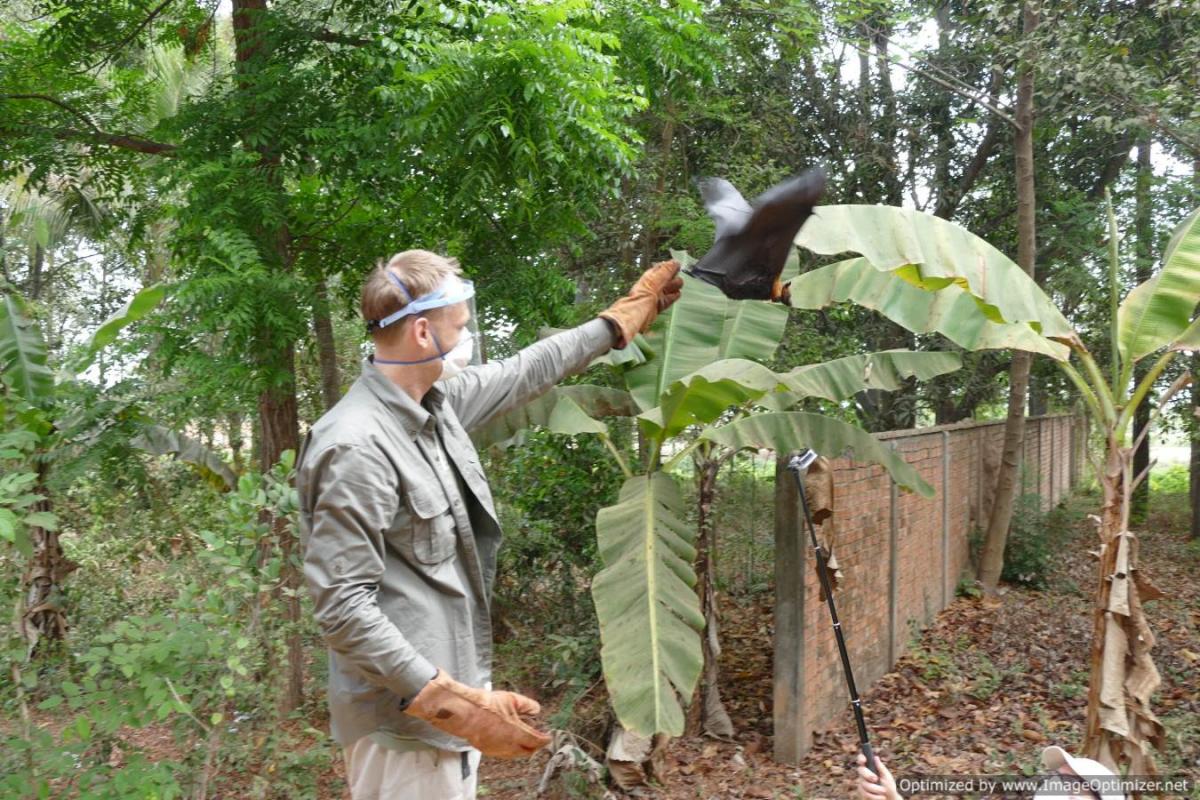- Home
- Worldwide
- CIRAD worldwide
- Projects
- BCOMING Project
Innovating to protect biodiversity and to thereby reduce infectious disease outbreaks - BCOMING

Bat release equipped with GPS © J. Cappelle, Cirad
Issues
Biodiversity loss in biodiversity hotspots is, among other socio-ecological factors, the key to understanding, preventing and reacting to future pandemics. However, despite this knowledge, the COVID-19 crisis has revealed the limitations of implementing One Health approaches. One of the main limitations is the lack of context-based solutions that actors could easily implement in the field.
To remedy this, BCOMING will build on previous international projects to co-develop innovations with all actors in biodiversity hotspots, with the goal of reducing the risk of infectious disease outbreaks through biodiversity conservation and disease surveillance strategies.
Description
The project activities will be implemented in three tropical biodiversity hotspots in Southeast Asia, West Africa and the Caribbean.
The goals of these activities are:
- Helping to better understand the mechanisms underlying the impact of biodiversity on the risk of infectious disease outbreaks;
- Facilitating the development of context-based biodiversity conservation and restoration strategies that help to reduce the zoonotic risk through the development of participatory tools;
- Improving capacities to detect outbreaks and helping to halt future epidemics before they become pandemics, through the development of surveillance strategies and tools for the detection of pathogens;
- The consortium is comprised of academics in the biomedical, environmental and social sciences, private companies, NGOs, and local and international actors, bringing together the wide range of disciplines and types of expertise required to achieve all of the expected results;
- The integration of BCOMING into the PREZODE initiative will help to extend the project innovations and to disseminate leading-edge socio-economic environmental strategies.
Expected results
The expected results are as follows:
- Our knowledge of the influence of biodiversity and other factors on the structure of microbiomes and on zoonotic risks will be improved;
- Outbreak detection capacities will be improved, new solutions for the early and rapid detection and characterisation of pathogens will be developed;
- The design of sustainable, biodiversity-friendly socio-ecosystems with lower zoonotic risks, integrating sustainable prevention and mitigation measures, will be facilitated;
- Cost-effective systems to predict and monitor zoonotic risks based on users’ needs and on host ecology will be developed;
- Stakeholder engagement will be guaranteed and participatory processes will be developed to support the design, dissemination and application of new solutions aimed at preventing pandemics.
























